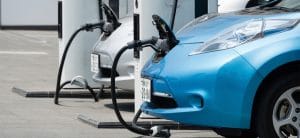Suzuki Motor Corp. is trying to insulate its Indian unit from the risks involved in developing electric vehicles even as the outcome of such efforts will benefit Maruti Suzuki India Ltd directly.

Driven by a policy push in India and a desire to keep its market share intact, Suzuki has formed two crucial partnerships—one where it will produce lithium ion batteries in collaboration with Denso Corp. and Toshiba Corp.; and another with the world’s largest automaker Toyota Motor Corp. to introduce electric vehicles in India by 2020.
In both the cases, while there is no direct involvement of Maruti in any manner, the fact that the Indian company does not have any equity participation means that it is unlikely to face any risk even if India’s electric vehicle drive fails to take off.
The role of Maruti in these partnerships may best be limited to that of a procurer of lithium ion battery packs (from the tripartite joint venture) and of electric vehicle platforms from the Toyota-Suzuki partnership. It will, of course, sell those to Indian customers if the electric vehicle market takes off in the country.
According to Mint, R.C. Bhargava, chairman of Maruti Suzuki said “The whole tie-up between Suzuki and Toyota is specifically for the Indian market. Hence, it is solely going to benefit Maruti. The Gujarat plant is also operated (and owned) by Suzuki but it has benefitted only Maruti.”
While the equity structure of the Toyota-Suzuki partnership is not known, in case of the joint venture for battery packs, the initial capital expenditure will be 20 billion Japanese yen (around $184 million). The joint venture company will be led by Suzuki, which will hold a 50 percent share.
Toshiba and Denso will have 40 percent and 10 percent, respectively, Suzuki Motor said in a statement. The collaboration between Toyota and Suzuki will also work in the areas such as environment-friendly technologies, hybrids, fuel cell tech, safety and connected technologies. The two companies will also source component from each other as a part of the agreement.



























